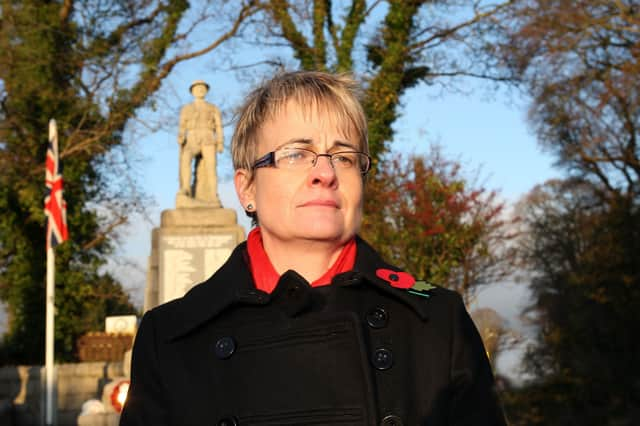‘I will always be a champion of farmers and their needs and issues’ - Margaret Ritchie


If there is any group in Northern Ireland society today who deserves recognition for overcoming what’s been a challenging year to say the least, it’s our farmers.
That’s according to someone who has long championed their needs and issues, in all aspects of her wide-ranging political life - Margaret Ritchie.
Advertisement
Hide AdAdvertisement
Hide AdThe former SDLP leader and present peer at the House of Lords - she received a nonaffiliated peerage in Theresa May’s resignation honours list last year - stressed that she wanted to “commend them all” for how they have overcome “very, very difficult circumstances”.
Speaking just last week, the Baroness said: “They have had to face Brexit and all the consequences of that, they have had to face what is going to be a new funding regime, and then Covid on top of that.”
Ms Ritchie, who has always been vocal about and very involved in agricultural issues here in the Province, herself grew up in the 1060s “in a rural environment in Co Down”.
She says: “We lived in a detached house, but my cousins had a farm, so I would have been well aware of the farming way of life, and my mother’s family had a farm in Cavan.
Advertisement
Hide AdAdvertisement
Hide Ad“I’d go as far as to say that I knew nothing about farming growing up, but what I did know was that farmers worked very hard, and it could have been an 17 or an 18 hour day, or indeed longer, because animals don’t take holidays.
“And depending on what persuasion you were, you either went to your match on a Sunday, or you went to your parade, and that was really what defined community and defined farming folk.
“I don’t want to politicise it at all, but that was the nature of rural communities.
“I was also, at that time, very conscious of that fact that farming folk worked very hard and were part of the supply chain, and that sometimes their economic return was disproportionate to the amount of effort that they had invested in their enterprise.
Advertisement
Hide AdAdvertisement
Hide Ad“However, they were becoming that bit more scientific, basing a lot of their work on research, and therefore able to develop farming methods that yielded a better production.”
Before getting her break into the political world, Margaret completed a degree in Geography and Political Science and “worked in several jobs”; he became a councillor on Down District Council in 1985, and in 1987, she became a parliamentary assistant to SDLP MP, who, unbeknownst to her at the time, would be her predecessor at Westminster.
The Co Down woman says that it was when she was “exposed to things politically” - particularly during her spell at Westminster as MP for South Down from 2010 - 2017.
“You get to see the range of farming practises, and you realise the importance of farming to our community in terms of gross domestic product - and the fact that there needed to be more investment.
Advertisement
Hide AdAdvertisement
Hide Ad“It was really through my political involvement that I was able to see the depth and the wealth and the contribution that farmers and farming enterprises make to the supply chain.
“They are at the start of that chain - they are the producers, and it all starts with them.”
But Baroness Ritchie agrees that our farmers are often reluctant to push themselves forward at times, or defend themselves when the job they are on the receiving end of bad press, or unfair deals.
This, she believes, is because they are simply so focused on getting the job at hand done.
Advertisement
Hide AdAdvertisement
Hide Ad“They do rely on their political representatives and their unions a lot, to be their bulwark in terms of protecting their back so to speak.”
But she feels that the Covid-19 pandemic has rightfully brought to the fore just how important a role farmers play in the local economy. “Farmers have always been key workers, and I think that has been acutely highlighted by Covid, because people want local produce, and I’ve certainly seen a growth in visits to the likes of market gardens and agricultural farm shops that, with people choosing them rather than going to the larger towns.
“So farmers are indeed quite pivotal.” Indeed, the peer says she remains still very much in touch with members of the local farming community, and says that the development of rural enterprises is also “highly important” to her.
And she has sympathy with those who have felt particularly isolated over 2020, as the full impact of Covid-19 hit, adding that the issue of loneliness and mental health was one that “needs to be looked at”.
Comment Guidelines
National World encourages reader discussion on our stories. User feedback, insights and back-and-forth exchanges add a rich layer of context to reporting. Please review our Community Guidelines before commenting.